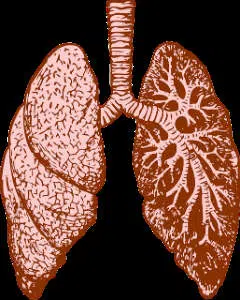


Nursing homes can be a breeding ground for infections and illnesses. There are plenty of risk factors here, as you have large groups of elderly people living together in close quarters, where infections can spread easily. Couple this with the fact that older people generally have weaker immune systems and infection breakouts can turn deadly. A variety of guests and outsiders also regularly visit nursing homes, and sometimes they carry pathogens from the outside with them. If you have a loved one in a nursing home, it’s important to understand these risks and do what you can to keep your elderly loved one safe while living in a nursing home.
Some of the most common infections and illnesses in nursing home populations include:
When a nursing home resident, staff member, or visitor develops an acute respiratory infection, these pathogens can spread quickly and lead to a breakout. These infectious agents can spread through large respiratory droplets, direct or indirect contact, or airborne droplet nuclei.
Respiratory tract infection outbreaks are very common in nursing homes – according to the New York State Department of Health (Albany), in 1992 there were 164 such outbreaks, accounting for 48% of total reported outbreaks.
Due to changes in digestion and gastrointestinal flora, seniors are at a higher risk of developing gastrointestinal tract infections. Outbreaks of these infections are relatively frequent in nursing homes. Sometimes, these cases may be caused by negligent factors, such as unsafely cooked food. Unfortunately, not all nursing homes prioritize safety standards the way they should.
Common causes of GTI in nursing home populations include:
Skin and soft tissue infections are common in nursing home populations due to a number of factors. The elderly are generally more prone to infections, so anyone who suffers a cut or abrasion is automatically at a higher risk. Conditions like staph infections can spread in a variety of ways, including through boils, food poisoning, cellulitis, and toxic shock syndrome.
Symptoms of skin and soft tissue infections generally include redness and swelling in the arms, legs, around the eye, in your stomach, and around the anus.
If your elderly loved one is suffering from persistent skin and soft tissue problems, it’s important to make sure their environment is not to blame. If unsanitary conditions caused the condition or made it worse, it’s important to remove your loved one from that environment and consider speaking with an experienced nursing home neglect lawyer.
Urinary tract infection (UTI) is the second-most common infection in nursing home populations and the most common cause of hospitalization for bacterial infection. A large number of these cases do not have symptoms. In asymptomatic cases, antimicrobial treatment has been found to have no benefits, and could even cause some complications.
Nursing home-acquired pneumonia (NHAP) is one of the most common infectious disease in these facilities and can often be fatal. Preventative measures should be taken with nursing home residents more predisposed to this condition, including keeping them in a semi-upright position at night.

If your elderly loved one has been suffering from persistent health problems, it’s important to make sure their long-term care facility is safe. When you visit, look out for any unsanitary practices. And talk to your loved one to see what their life is like there.
If you suspect that nursing home negligence has played a role in your loved one’s health problems, we advise speaking with an experienced Pennsylvania nursing home neglect lawyer. When preventable diseases spread due to negligence, it’s important to make sure the parties responsible are held liable before other residents are affected. Our nursing home lawyers can help you better understand your legal options in a free consultation.

Haberman Law is dedicated to representing the rights of victims of nursing home abuse and neglect.
Many of us turn to nursing homes, assisted living facilities, and group homes to provide care for our elderly loved ones.
If you suspect that a loved one was the victim of abuse or neglect in a nursing home, assisted living facility, or group home, contact us.
Call us for a free consultation:
215-240-7771
© 2025 PA Nursing Home Lawyers By Len Haberman, Esq. All Rights Reserved